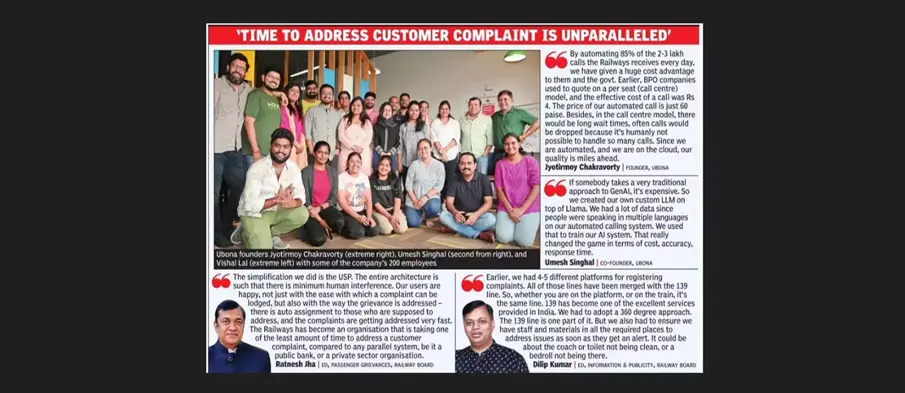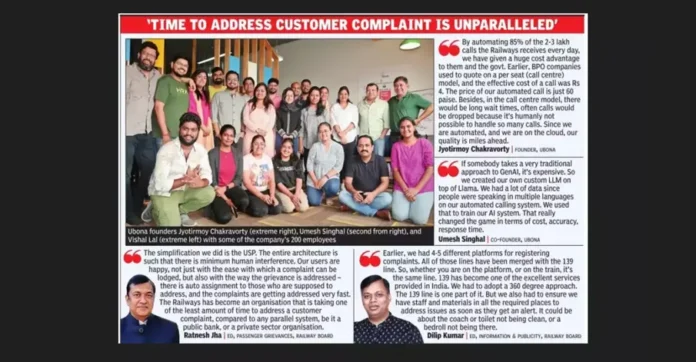
Indian Railways’ helpline number 139 is one of the largest helpline services globally, receiving over 300,000 calls daily. Over the past year, it has undergone a significant shift from a call center-based approach to a predominantly automated system. This system, capable of interacting in various Indian languages, allows users to access real-time information on train schedules, ticket confirmations, and train routes. The automation provides responses in mere seconds, overcoming the limitations of the previous human-operated system, which often resulted in long wait times and dropped calls due to high call volumes.
A recent enhancement in the IVR system has revolutionized the complaint-handling process. Passengers can now report issues such as unclean toilets, missing bedrolls, or the urgent need for medication simply by speaking to the system in natural language. Currently, the service supports Hindi and English, with more languages like Telugu and Bengali being added soon. What stands out is the seamless experience, where complaints are instantly relayed to the relevant department for prompt action, thanks to the system’s automation and integration with backend resources.
This transformation has been powered by automation and Generative AI (GenAI), developed by Ubona, a Bengaluru-based company with just 200 employees. Ubona, a pioneer in speech recognition, has a long history of innovation in voice technologies, dating back to its founding in 2007. The company was initially focused on voice search for restaurants, and later on music services for Airtel. However, after facing a setback in 2015 due to disruptions in the market, Ubona shifted its focus to automating customer services for large enterprises.
Ubona’s breakthrough in the railway helpline system is attributed to its deep expertise in voice recognition, telephony, payments, and AI. Today, banks, insurance companies, and e-commerce platforms like Flipkart use Ubona’s system for various services, from customer verification to managing cash-on-delivery purchases.
JC, one of Ubona’s founders, explained that their remarkable capabilities helped them secure the Indian Railways’ 139 contract during its renewal. According to Ratnesh Jha, Executive Director of Passenger Grievances at the Railway Board, the Railways wanted to integrate AI/ML technologies and regional language support. Ubona delivered with a cost-effective solution, charging just 60 paise per call compared to the previous Rs 4 per call for manual handling. This shift also opened up services to a broader audience, as more users began utilizing regional languages, making communication smoother for rail users across the country.
The latest GenAI-driven complaint system has proven particularly impactful. By simply voicing concerns like, “Mere compartment mein paani nahi hai” (My compartment has no water) and providing a PNR number, passengers can ensure that their complaints are processed swiftly, with relevant Railways staff being alerted in real time to address the issue at the next available station.
Umesh, another co-founder, revealed that Ubona built a custom language model based on Meta’s Llama LLM, leveraging years of conversation data. This has reduced the need for call center interventions. Building on this success, Ubona has also won the contract to automate the IRCTC helpline 14646, which is expected to go live in the coming months.




